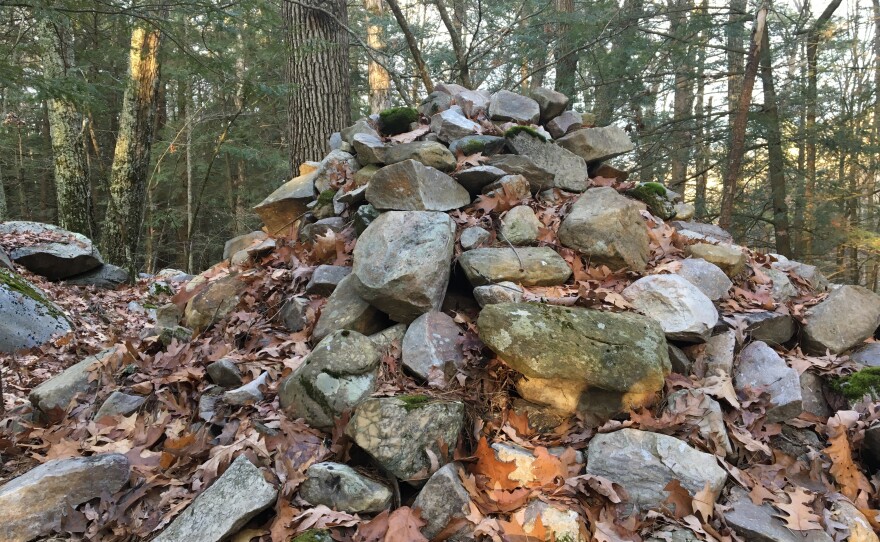Updated Feb. 4, 2021
Williams College and the Stockbridge-Munsee Band of Mohican Indians are launching a new collaboration focused on historic preservation. The school is providing a three-room office for the tribe in downtown Williamstown, Massachusetts, and funding student interns.
The partnership has a special significance because of the tribe’s history with some members of the Williams family.
The Stockbridge-Munsee reservation is in Wisconsin today. But centuries ago, before their land was taken from them, the tribe's vast homelands included the Berkshires.
Bonney Hartley, the tribal preservation manager, said having space at Williams College is exciting — and particularly significant because of the impact the 18th century founder of the school and his family had on the tribe.
"They were the main, you know, land grabbers of our tribe in Stockbridge," Hartley said.
For a period of time, in the mid-1700s, the native people and colonists governed the town of Stockbridge together. But over time, the colonists took over the governance of the town — and the land.
"Elijah and Ephraim Williams in Stockbridge, Massachusetts, were the main family individuals that were the cause of dispossession of our tribe’s lands here," Hartley said. "In all of the historical documentation, it comes across very clearly. It’s not hidden."
The bequest of Ephraim Williams, Jr. founded the school that became Williams College. His father, Ephraim Williams, Sr., claimed land in 1742 that several Stockbridge Mohicans had cleared for themselves. A few years later, according to the late historian Lion Gardiner Miles, Williams claimed more acreage that tribal members said had been taken from them.
In both cases, the Massachusetts Bay General Court allowed Williams to keep the land.
Two decades later, Elijah Williams — brother of Ephraim Williams Jr. — held a town meeting without giving sufficient notice to tribal members, many of whom were away at their maple sugaring camp. At that meeting, he was elected town selectmen.
Christine DeLucia, who teaches indigenous studies at the college, describes the collaboration with the tribe as an "early step" for the school "to reckon with its histories."
"Given that the Williams family name has been so well known in the tribe as a source of pain and great dispossession in the 18th century, how can we now take this in a different direction?" DeLucia said.
DeLucia said the initiative can be looked at as a restorative process related to justice.
Maud Mandel is the president of Williams College and a historian.
"Williams sits on the ancestral homelands of the tribe," Mandel said. "And, it's really important for the institution to take stock of its history and to do whatever it can to help tell the history."
Two Williams College student interns are already at work on this, assisting the tribe with in-depth research to protect cultural sites and repatriate historical items. Hartley said she has been energized by the amount of work the students have accomplished in less than a month.
"To see their enthusiasm when they find a new piece of research that would help build our case for the repatriation claims, for example," Hartley said. "It just makes me feel like, okay — it's not only us. Somebody else thinks it's important."
Hartley said one student researched a biography of Lieutenant Umpachenee, a tribal leader who had a home site in Stockbridge. It was submitted to the state historical commission to help protect the site.
Another student interviewed a family in Stockbridge who then donated a 1750s wooden ladle with a carved bird’s head to the tribe.
Hartley and the college are working to line up more student interns to support the tribe's work during the spring semester.
Correction: An earlier version of this report incorrectly stated that Ephraim Williams Jr. claimed land in 1742 that the Stockbridge Mohicans had cleared for themselves (along with additional land that tribal members said had been taken from them). But it was Ephraim Williams Sr. who had claimed the land.
The report also incorrectly identified Elijah Williams as the son of Ephraim Williams Jr., but Elijah was his brother.
An earlier version of the headline stated it was the college’s namesake that is a source of pain to the tribe, but it is the Williams family name that is a source of pain.









